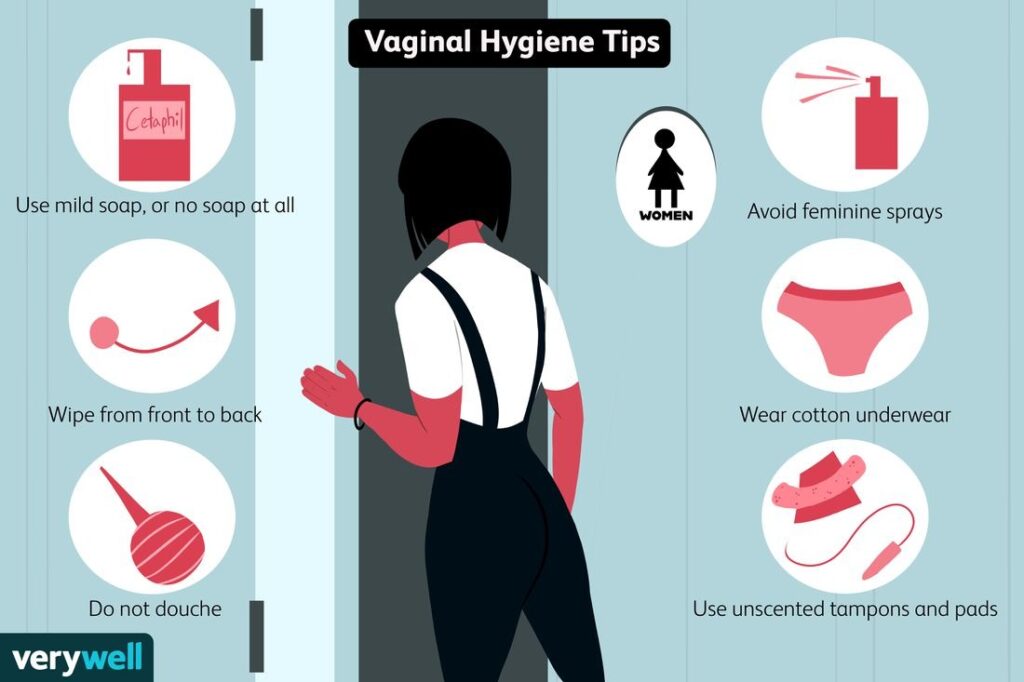Reproductive Hygiene: Essential Tips for a Better Health
Understanding Reproductive Hygiene: Simple Tips for Better Health
Reproductive hygiene is about keeping the parts of our body involved in reproduction clean and healthy. For women, this includes the vagina, vulva, and other related areas. Good hygiene can help prevent infections and keep you feeling comfortable and healthy. Here’s a simple guide on how to maintain good reproductive hygiene.
Why Good Hygiene is Important for Reproductive Health
Keeping your reproductive area clean helps prevent infections such as bacterial vaginosis, yeast infections, and urinary tract infections (UTIs). These infections can be uncomfortable and, if not treated, can lead to more serious health problems. Good hygiene helps maintain the right balance of bacteria in the vaginal area, which is important for overall reproductive health.
Tips for Keeping the Private Parts Clean
- Daily Washing: Gently wash the outer parts (vulva) with warm water every day. You can use a mild, unscented soap if you need to, but avoid douching (cleaning inside the vagina) as it can disturb the natural balance of bacteria.
- Dry Properly: After washing, gently pat the area dry with a clean towel. Keeping the area dry helps prevent bacterial growth.
- Wear Breathable Clothes: Choose loose-fitting clothes and cotton underwear to allow air circulation and reduce moisture.
- Avoid Irritants: Stay away from scented soaps, sprays, or wipes in the genital area as they can cause irritation.
- Practice Safe Sex: Use condoms to help prevent sexually transmitted infections (STIs).
How to Maintain Good Hygiene During Menstruation
- Change Pads or Tampons Regularly: Change sanitary pads every 4-6 hours and tampons every 4-8 hours. This helps to prevent infections and keep you feeling fresh.
- Use Clean Products: Always use clean sanitary pads or tampons. Unscented products are better because they are less likely to cause irritation.
- Dispose of Products Properly: Wrap used pads or tampons in toilet paper or a small bag before throwing them in the trash. Avoid flushing them down the toilet
- Wash Your Hands: Always wash your hands with soap and water before and after changing your pad or tampon.
- Wear Clean Underwear: Change your underwear every day and choose cotton ones as they are more breathable and comfortable.
How to Teach Girls About Cleaning Their Private Parts
- Use Simple Language: Explain the importance of keeping clean in a way they can understand.
- Show Them How: Demonstrate how to wash the outer genital area gently with water and mild soap.
- Encourage Questions: Let them ask questions and answer them honestly.
- Make It a Routine: Encourage them to make this a part of their daily hygiene routine.
- Emphasize Hand Washing: Remind them to wash their hands before and after cleaning themselves to prevent spreading germs.
Clearing Up Common Myths
Myth: Douching is Necessary.
Fact: Douching can actually cause infections by disrupting the natural balance in your vagina.
Myth: Tight Clothes Don't Matter.
Fact: Tight clothes can trap moisture and heat, leading to infections.
Myth: Only Women Need to Worry About Reproductive Hygiene.
Fact: Men also need to maintain good hygiene to prevent infections and stay healthy.
Signs of a Healthy Vagina
- Normal Discharge: It’s normal to have some clear or white discharge. This helps keep the vagina clean. If the discharge changes color, smells bad, or has a different consistency, it might be a sign of an infection.
- No Itching or Irritation: A healthy vagina shouldn’t be itchy or irritated. If you experience these symptoms, see a doctor.
- No Unusual Odor: A mild odor is normal, but a strong, unpleasant smell could mean there’s an infection.
- Comfort: There should be no pain when urinating or during sexual activity.
- Regular Periods: While periods can vary, having a regular menstrual cycle is a sign of good reproductive health.
By following these simple tips, you can maintain good reproductive hygiene and ensure your reproductive system stays healthy. Remember, taking care of your body is an important part of feeling good and staying healthy. Regular check-ups and paying attention to your body are key to staying healthy.

